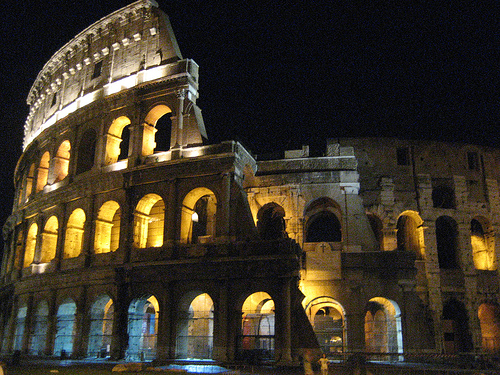Italy is a land of great contradictions which, along with other factors, have been paralysing the country since unmemorable time. And culture falls perfectly into this cage of contradictions: if you stroll along the streets of any Italian city and ask the first person you bump into what they think about culture in their country, you are likely to be answered that Italy is an open-air museum and its people might easily live on it. Yet, along your way, if you ask a second person about it, they are likely to answer that nobody can live on culture – which is approximately what Giulio Tremonti, former Minister of Economy and Finances, once said –. When Renzi took office, he announced that his government would be totally new, that a new generation of politicians would replace the old guard, that a new era for Italy was about to begin. Yet, this didn’t happen in culture as the current minister, Dario Franceschini, began his political career in the late 90s.
Having a look at the Ministry of Culture website homepage, the first thing that might strike you is that there is no English – or any other language – version of the website, but who really cares about this, you’re surely not a foreign investor attracted by the richness of Italian culture, nor a Japanese tourist who wants to look for the most fascinating places to visit. Apart from that, the website is quite easy to explore – if you can read Italian, of course – and it provides an exhaustive list of ministerial activities, among which the list of the various cultural events, organised by region or in a calendar format, such as exhibitions, festivals, and big events. The most interesting projects so far have been the extended opening of the most important sites of the country from 8pm to 12am from North to South and the free entry to all public museums on the first Sunday of each month. Yet, if the first is advertised on the homepage, the latter is difficult to find. But don’t worry, if your eager to know about further projects, you can always check out the Minister’s twitter account – as long as you can read Italian, of course –.
What is certainly advertised on the Ministry website is VeryBello, the funny – and a bit embarrassing – name of the platform wanted by the minister which provides all the events taking place in the Peninsula allowing you to choose the category of event you are interested in, such as concerts, opera, jazz or ballet, theatre, festivals and so on, and luckily, it is available in the English version. Yet, the platform was created to cover the period of Expo 2015, taking place in Rho (Milan), and it costed 35.000 € when an official website for Italian tourism was already online in many languages and in partnership both with the Ministry and Expo.
One of the last plans of Franceschini is the National Library of Unpublished Books, a library meant to collect and treasure all the Italian unpublished books which should represent the memory of the whole country. As Simone Cosimi clearly states in his article on wired.it, it would be practically impossible for users to find a book in it because the authors would be completely unknown as the titles of their books, therefore the memory preserved in the library would be as easily lost as the library didn’t exist since it would be difficult to create a proper and useful catalogue. In addition, it is necessary to remember – and to remind the minister – that last year in Italy a little less than the 50% of the population read at least one book in one year. We can do without the Library of Unpublished Books and find a solution to this much bigger problem.
The last controversy about the minister is his choice of the twenty new museum directors. This choice caused the rage of some members of the artistic élite and of some politicians because Franceschini appointed seven foreigners – who anyway have been living or working in Italy for years – out of twenty as new directors. Vittorio Sgarbi, the most famous and notorious Italian art critic, claimed that Franceschini humiliated all those worthy Italian candidates who applied for the job by attacking the methods through which the new directors were chosen. And a spokesperson of Lega Nord, the Member of the Euro parliament Buonanno, stated that Franceschini is an enemy of Italian Art. Yet, it is impossible to criticise Franceschini’s choice now, Sgarbi and the rest of those who disapprove of the seven foreign directors will have to wait to see how they will manage their responsibility. Italian are always – and rightly – proud of the endeavours of their fellow compatriots abroad, yet their less keen to appreciate a foreigner working for their country, and this is a further contradiction.

